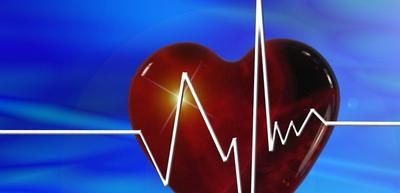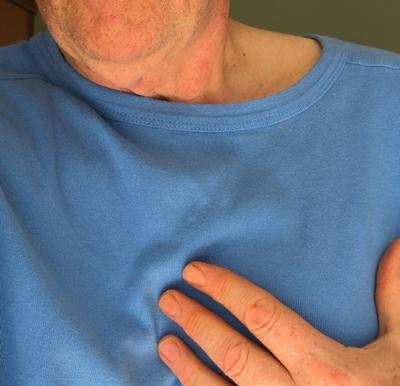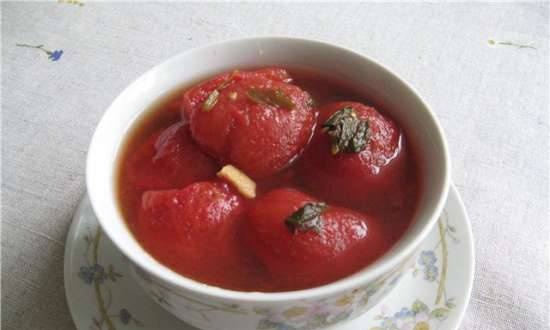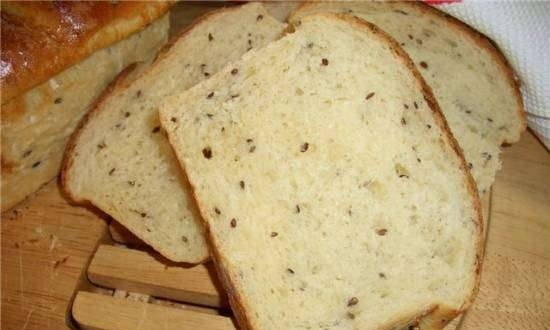|
 Ischemic heart disease (CHD) is the most common cardiovascular disease. The most severe manifestations of this disease are acute myocardial infarction and angina pectoris. Ischemic heart disease (CHD) is the most common cardiovascular disease. The most severe manifestations of this disease are acute myocardial infarction and angina pectoris.
The development of coronary heart disease is primarily caused by atherosclerotic lesions of the coronary vessels of the heart, as well as arterial hypertension, increased blood coagulability, predisposing to thrombosis, frequent neuropsychiatric stress, overweight, insufficient physical activity, alcohol abuse, smoking and a number of other factors.
As long-term observations show, normalization of lipid (fat) metabolism plays an important role in the fight against atherosclerosis. To do this, first of all, it is necessary to limit the calorie content of the diet by reducing animal fats, refined carbohydrates (sugar, sweets), confectionery and flour products, including white bread. Rye or bran bread, crackers, dry uncooked biscuits, crispbread.
Restriction of saturated fatty acids contained in animal fats, and adequate intake of polyunsaturated fatty acids, which are rich in vegetable oils, not only normalize lipid metabolism, but also help to reduce the excitability of the cerebral cortex. That is why fatty meats should be excluded from the menu, fish, fatty meat soups, cream, cream, cream, restrict butter.
It is better to season salads and vinaigrettes not with sour cream, but with vegetable oil. Vegetarian soups are recommended: cereals, dairy, fruit: lean meat, chickens, turkey, boiled or fried after boiling. Cholesterol-rich foods (brains, liver, kidneys) are contraindicated: it is allowed to eat no more than 2 - 3 eggs per week. And, conversely, it is recommended to include in the diet products containing lipotropic substances that have a beneficial effect on fat metabolism: cottage cheese, oatmeal, cod, egg white.
The optimal protein content in the diet increases the body's resistance to stressful situations, and this is a very important condition for preventing angina pectoris attacks and the occurrence of myocardial infarction. However, everything needs a measure. Excessive consumption of protein foods is also harmful: too high in the diet of protein, as well as animal fats and refined carbohydrates, increases the coagulating properties of blood, promotes thrombus formation in the vessels.
A noticeable decrease in blood clotting properties can be achieved by including seafood in the diet: seaweed (by the way, it also has a laxative effect), scallop, squid etc. They contain iodine in the form of easily assimilated organic compounds, complete amino acids, trace elements and B vitamins, which are especially necessary for the normal functioning of the myocardium and the nervous system.
 Restriction of table salt in food allows you to more successfully fight against fluid retention in the body, with arterial hypertension - a frequent companion of coronary heart disease, with increased irritability and reactivity. Food should be cooked without salt and added to ready-made meals, but no more than 4 - 5 grams per day (half a teaspoon). Restriction of table salt in food allows you to more successfully fight against fluid retention in the body, with arterial hypertension - a frequent companion of coronary heart disease, with increased irritability and reactivity. Food should be cooked without salt and added to ready-made meals, but no more than 4 - 5 grams per day (half a teaspoon).
Magnesium salts contained in food also contribute to lowering blood pressure: they have an antispastic and vasodilating effect. Therefore, if ischemic disease is accompanied by hypertension, it is recommended to constantly include foods rich in magnesium in the diet. During the period of exacerbation of hypertension, on the advice of a doctor, you should follow the so-called magnesium diet 2 - 3 days a week.Magnesium salts enhance the processes of inhibition in the cerebral cortex, thereby providing a calming effect on the nervous system.
Ascorbic acid has a beneficial effect on the normalization of cholesterol metabolism and the permeability of the vessel walls, which usually increases with atherosclerosis. Therefore, patients with coronary artery disease should eat more vegetables and fruits. Especially recommended are rose hips, rich in vitamin C, black currants, lemons, parsley, green onions, dill. In addition to vitamin C, some vegetables and fruits contain a lot of potassium, which is necessary for the normal contractile function of the heart muscle. The effect of the ballast substances of vegetables and fruits is also positive: they contribute to the elimination of cholesterol from the body. In addition, vegetables and fruits contain vitamin P, which normalizes the permeability of the vascular wall.
In order not to overload the heart, you should not consume more fluids than the physiological norm - 1.5 - 3 liters per day (depending on the environment). Therefore, it is necessary to exclude from the diet dishes that cause thirst - spicy, salty snacks, sauces, seasonings. Soaked herring is allowed no more than once a week. But a sharp restriction (less than half a liter) of fluid is also harmful - it causes various disorders in the body, constipation.
With obesity, reduce weight and thereby prevent the progression of atherosclerosis, a low-calorie diet helps to facilitate the work of the heart, as well as fasting days (apple, kefir and others) 1 - 2 times a week.
In the period of exacerbations of coronary heart disease, with an increase in the attacks of angina pectoris, when the doctor prescribes bed or bed rest, it is recommended to significantly reduce the caloric content of the diet for 10 - 15 days due to animal fats, carbohydrates, limit the liquid to 1.2 - 1 liter. To facilitate the work of the digestive system, food should be given crushed or mashed. Products such as prunes, beets, kefir, buckwheat porridge are recommended, which enhance intestinal peristalsis, since for many, bed rest causes constipation.
B vitamins contain: fish, meat, rye and bran bread, buckwheat and oatmeal, potatoes, seafood, nuts.
Magnesium salts contain: wheat bran, rye bread, buckwheat and oatmeal, nuts, dates, parsley, watermelon, lettuce, beets, carrot, black currant.
Potassium salts contain: potatoes, dried apricots, raisins, prunes, peaches, apricots, rose hips, eggplant, zucchini, dill and parsley, black currant, dates, bananas, grapes, lettuce, green onions, radishes, beets.
E. G. Paramonova
|
 Ischemic heart disease (CHD) is the most common cardiovascular disease. The most severe manifestations of this disease are acute myocardial infarction and angina pectoris.
Ischemic heart disease (CHD) is the most common cardiovascular disease. The most severe manifestations of this disease are acute myocardial infarction and angina pectoris. Restriction of table salt in food allows you to more successfully fight against fluid retention in the body, with arterial hypertension - a frequent companion of coronary heart disease, with increased irritability and reactivity. Food should be cooked without salt and added to ready-made meals, but no more than 4 - 5 grams per day (half a teaspoon).
Restriction of table salt in food allows you to more successfully fight against fluid retention in the body, with arterial hypertension - a frequent companion of coronary heart disease, with increased irritability and reactivity. Food should be cooked without salt and added to ready-made meals, but no more than 4 - 5 grams per day (half a teaspoon).









